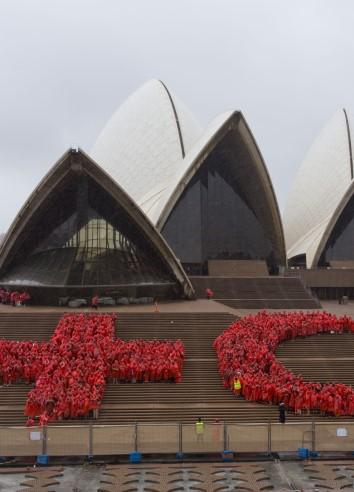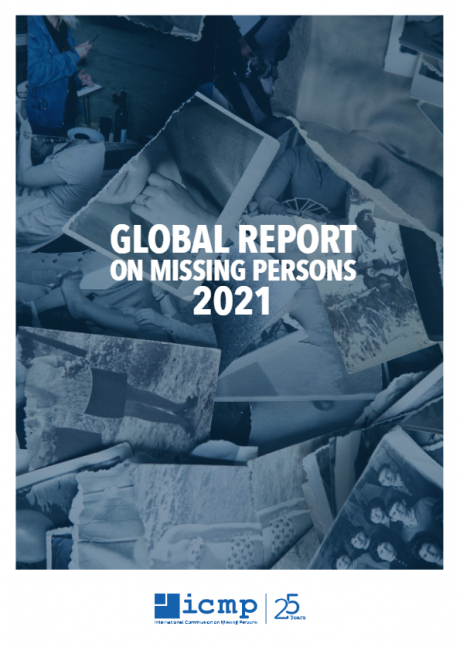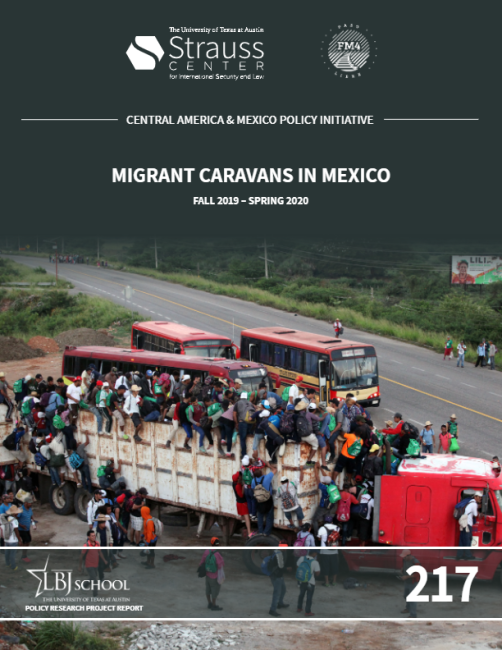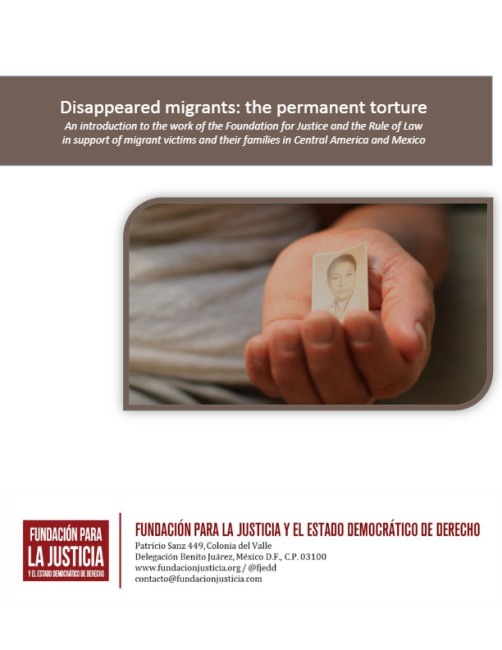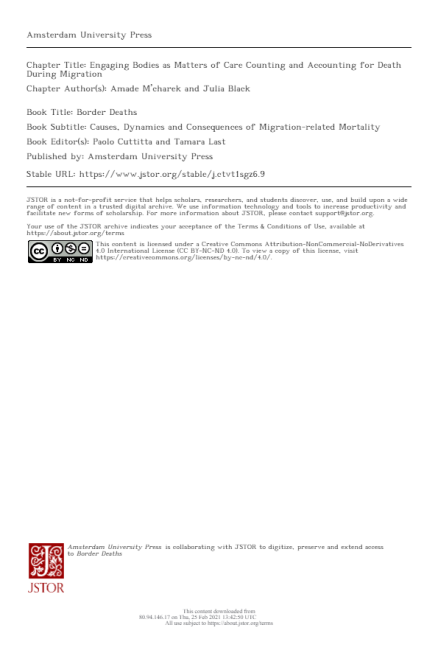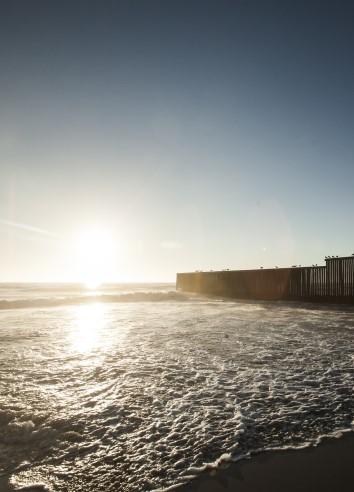
Forensic citizenship among families of missing migrants along the U.S.-Mexico border
Since the mid-1990s, US federal policy has funneled unauthorized migration through remote portions of the Sonoran Desert, resulting
in thousands of deaths and disappearances. Research about the work to find, care for, and identify those who have died at international borders largely focuses on forensic authorities or humanitarian volunteers. Often left out of such analyses are the families of the
missing and dead, who I argue are some of the most critical actors in this work. Drawing on fieldwork done between 2006 and 2021, in
this article I discuss how families of missing migrants impact forensic procedures on the US-Mexico border. They do this by learning
forensic skills and developing relationships with state forensic authorities. I argue that families of missing migrants are engaged
in forms of active citizenship that build relationships of care and obligation among themselves, state forensic authorities, and the
missing and dead.


